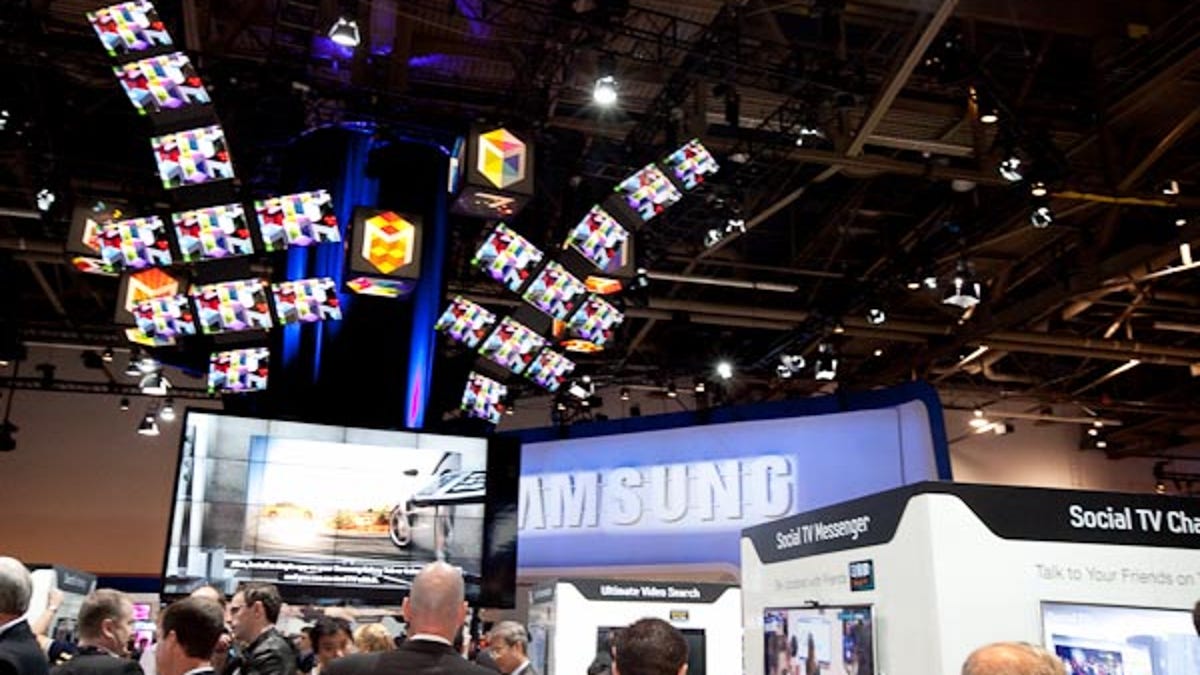How apps for your appliances represent the next opportunity
Samsung Electronics not only pushed its smart TVs at CES, but a whole line of smart appliances, including washers and refrigerators.

Smart televisions I sort of get. But smart refrigerators and washers?
If Samsung Electronics is right, developers may flock to smart appliances as the next opportunity. At the Consumer Electronics Show, the consumer electronic giant unveiled its vision for a wider range of smart appliances. That included music apps such as Pandora on the refrigerator and an app on the washer that can ping you when a load is done.
The move underscores just how pervasive the app world has become, moving beyond PCs and smartphones into all sorts of devices. Samsung has arguably been the most aggressive in pushing apps into newer devices. The company boasts having the largest library of TV-centric apps and plans to follow the same strategy to create an ecosystem of appliance apps.
For Samsung, having a catalog of apps for its TVs, washers, and refrigerators only serves to enhance the capabilities of its products, attracting the new consumers and retaining existing ones. Developers, meanwhile, get a chance to build their brand in the different parts of the home, and create new advertising opportunities.
"It doesn't take long for companies to embrace this," David Steel, executive vice president of North America strategic market, told me in an interview while at CES.
If you had asked me a few years ago about apps for televisions, I probably would have laughed it off. Yet Samsung has been able to a create a decent size--yet still niche--market for apps. Its TV line boasts 1,400 apps--the most among the television manufacturers--and 2,000 active members in its developer community. The company has used its reach as the top TV company to lure in developers, which can write one app and have it run on Samsung Blu-ray players and home theater systems as well.
"The TV experience is less about raw numbers," Steel said. "It's a very different area."
Unsurprisingly, video-related apps have done the best, while social media apps have done surprisingly well too, Steel said. The next software development kit will allow developers to take advantage of the newer televisions' gesture and voice-command capabilities.
To raise awareness for its TV ventures, Samsung has held developer contests. The company announced the winner of its TV app contest at its CES press conference, awarding the app Party Shots with a cool $100,000. The interactive app lets users take pictures at an event or gathering with their phone and push them to a Samsung Smart TV, allowing the photo to be included in a slideshow in real time.
Still, there's a big difference between a smartphone and TV screen, which you stare at all the time, and a refrigerator and washer, which you look at more sparingly. Steel points to Pandora and Epicurious as apps that make sense on the refrigerator, and Samsung plans to start the ball rolling with its own apps for the washer.
Samsung is considering holding similar contests for the other appliances to spur smaller developers into considering these different areas, Steel said. A focus for Samsung is to push developers into creating apps that link multiple devices. Right now, that consists of the phone and TV but could grow to include the other appliances.
"Over time, it'll be a must to have apps on multiple devices," Steel said.

